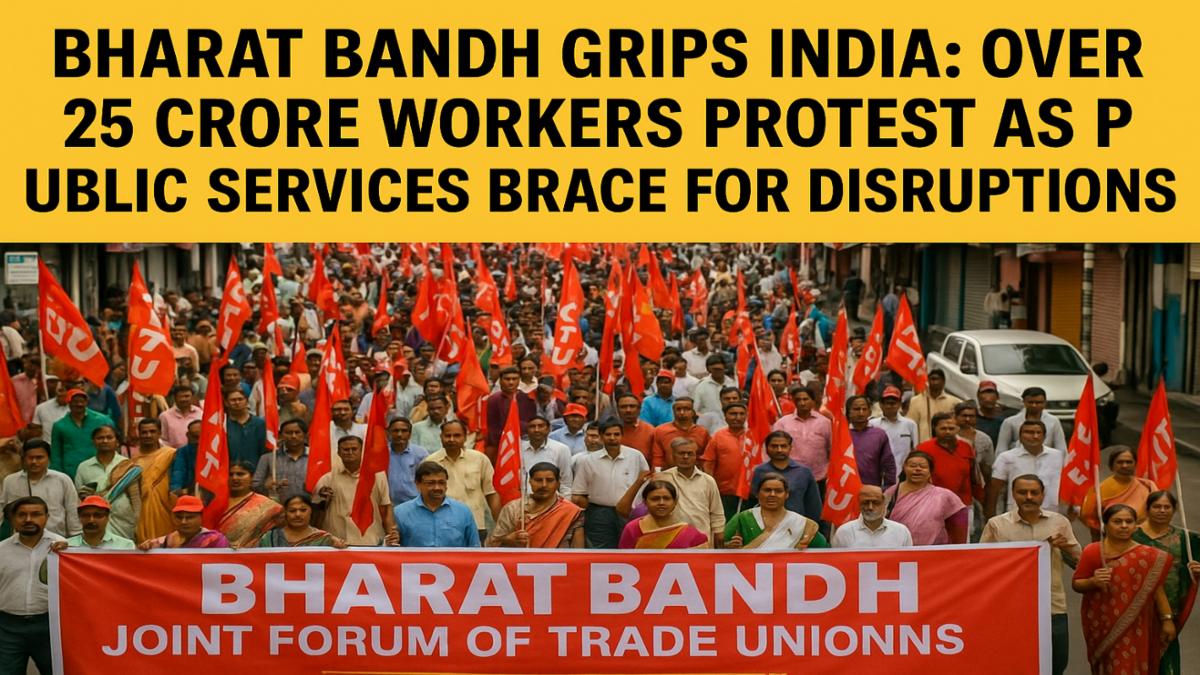Article Body
Bharat Bandh 2025: As India Halts, Workers Demand to Be Heard
By Staff Correspondent | July 9, 2025
India isn’t exactly quiet today.
In fact, it’s roaring — not with celebration, but resistance.
On July 9, nearly 25 crore workers from across the nation joined hands in what’s shaping up to be one of the biggest nationwide strikes in recent memory. Dubbed Bharat Bandh, the protest is being spearheaded by 10 central trade unions, and it’s not just urban wage earners who’ve turned up. From farmers in Punjab’s villages to contract teachers in Jharkhand, voices from every corner are rising against policies they say are “crushing the worker, pampering the corporates.”
So what’s at the heart of this unrest?
“It’s not about one rule or one reform. It’s about survival,” said Ranjana Mishra, a schoolteacher from Uttar Pradesh who joined the strike early this morning. “You can’t build a nation while ignoring the ones who actually build it.”
And there’s a lot they’re asking for — fair wages, stable jobs, a rollback of new labor codes that unions argue weaken worker protections, and more government employment schemes. A formal 17-point demand list was submitted to the Labour Ministry. The response? A deafening silence so far.
What’s more, the unions allege a worrying trend: retired personnel being rehired in government sectors while qualified youth remain jobless. In a country where 65% of the population is under 35, the symbolism isn’t lost.
That said, not everything is expected to come to a standstill. Banks and stock markets remain operational (though a few disruptions aren’t off the table), and no formal closures for schools or government offices have been declared. But public transport? That’s a wild card — expect delays, patchy services, and some chaos depending on where you are.
Of course, this isn’t India’s first large-scale protest. Strikes were held in 2020, 2022, and again in 2024. But this one feels different — angrier, perhaps, but also more desperate.
Whether it moves the government or not, Bharat Bandh 2025 has already done one thing: it reminded the country that millions of Indians still feel unheard — and they’re willing to stop the wheels of the nation to make sure they’re noticed.

Comments